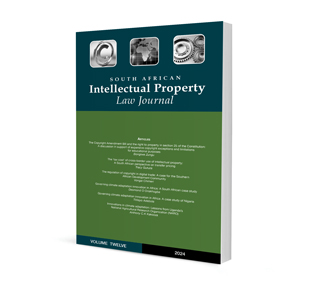The Copyright Amendment Bill and the right to property in section 25 of the Constitution: A discussion in support of expansive copyright exceptions and limitations for educational purposes

The Copyright Amendment Bill and the right to property in section 25 of the Constitution: A discussion in support of expansive copyright exceptions and limitations for educational purposes
Author Bongiwe Zungu
ISSN: 2521-2591
Affiliations: Lecturer in Commercial Law, University of Cape Town
Source: South African Intellectual Property Law Journal, 2024, p. 1-29
https://doi.org/10.47348/SAIPL/v12/a1
Abstract
The relationship between copyright law and the right to education has been a prominent topic for several decades. Attainment of the right to education is inextricably linked to copyright and the materials under it. Therefore, the proper construction of copyright rules is essential. The current copyright regime has been criticised for being out of touch with the educational needs of learners and students in South Africa. The South African government has been engaged in copyright reform to remedy this issue and other issues raised against the current regime. This reform process resulted in the Copyright Amendment Bill B13F of 2017. In June 2020, the President addressed a letter to Parliament and expressed concern that various copyright exceptions in the Bill, including ss 12A,
12B and 12D through which the attainment of the right to education is promoted, run the risk of violating the property rights of copyright holders under s 25(1) of the Constitution. This paper evaluates this claim. As part of this evaluation, this paper also considers whether intellectual property constitutes property under s 25 of the Constitution. The latter question is important because the current jurisprudence of the Constitutional Court on s 25 relates to the validity of the state’s regulation of corporeal property. The claim has been evaluated by copyright scholars before.
This paper builds on the work of other scholars by considering the nature of intellectual property and its theoretical underpinnings. The consequence of recognising intellectual property as property for constitutional purposes is that it will be protected against arbitrary state interference and unlawful expropriation under s 25 of the Constitution. To contextualise this, it should be reiterated that references to intellectual property in this paper include copyrights, patents, trademarks, designs and other traditional forms of intellectual property. This paper will demonstrate that an inquiry into the constitutionality of copyright exceptions and limitations in the Copyright Amendment Bill is unlikely to result in a finding of constitutional invalidity under s 25(1) of the Constitution.